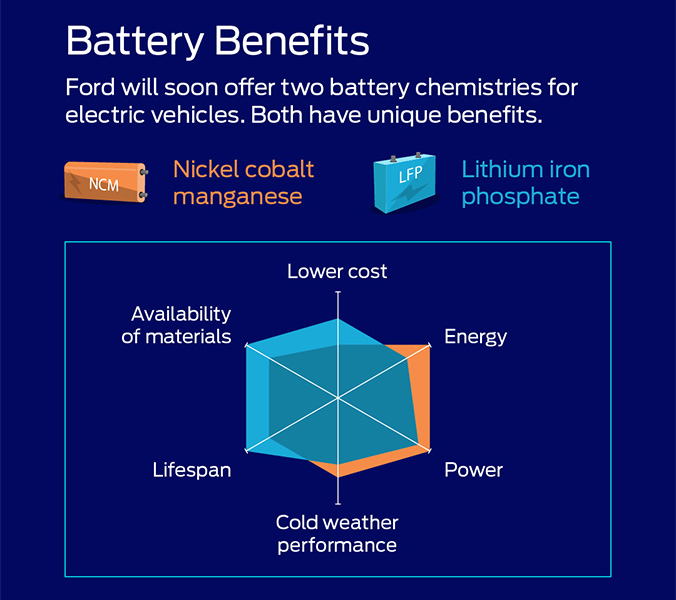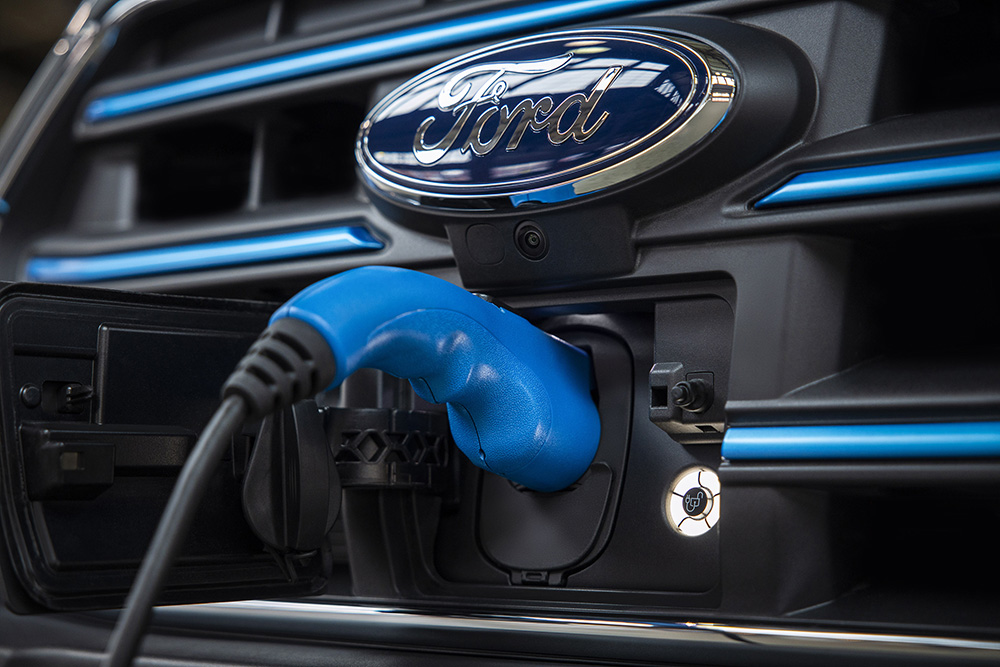Ford plans to invest $3.5 billion to build an LFP battery plant in Marshall, Michigan. BlueOval Battery Park Michigan will initially employ 2,500 people when production begins in 2026.
The automaker will offer LFP (lithium iron phosphate) as a second battery chemistry option in addition to NCM (nickel cobalt manganese), allowing customers to choose an EV with battery performance characteristics aligned with their needs. As the company rapidly scales EV production, introducing LFP batteries will also enable Ford to produce more vehicles.
LFP batteries are very durable, and they tolerate more frequent and faster charging and use fewer high-cost materials compared to NCM batteries. Bringing this new LFP plant to America will also reduce shipping and import costs, and allow Ford to get the full benefits of the incentives contained in the Inflation Reduction Act.
Ford will introduce LFP batteries for the Mustang Mach-E this year, and for the F-150 Lightning in 2024, in order to increase production capacity and reduce wait times for customers.

Ford says that when the plant comes online in 2026, it will produce one of the lowest-cost US-made batteries, allowing the automaker to contain or even further reduce EV prices for customers. Initial capacity will be 35 GWh per year—enough to power approximately 400,000 EVs.
“Ford’s electric vehicle lineup has generated huge demand,” said Ford CEO Jim Farley. “To get as many Ford EVs to customers as possible, we’re the first automaker to commit to build both NCM and LFP batteries in the United States.”
“We are committed to leading the electric vehicle revolution in America, and that means investing in the technology and jobs that will keep us on the cutting edge of this global transformation in our industry,” said Bill Ford, Ford Executive Chair.
Source: Ford


















































































